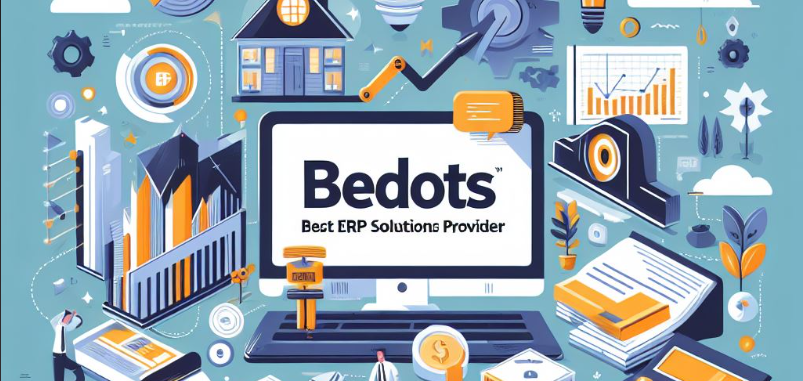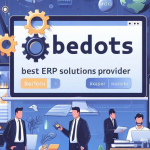In today’s fast-paced business environment, leveraging advanced ERP system features is crucial for optimizing operations, improving efficiency, and gaining a competitive edge. Enterprise Resource Planning (ERP) systems have evolved beyond basic functionalities, offering a wide range of advanced features that cater to the unique needs of modern businesses. Let’s explore some of the most powerful ERP system features that can transform your organization.
1. Real-Time Data Analytics in Advanced ERP Systems
One of the most valuable advanced ERP system features is real-time data analytics. With this feature, businesses can access up-to-the-minute insights into their operations, enabling faster decision-making. Real-time analytics allow managers to monitor KPIs, identify trends, and address potential issues before they escalate. By leveraging this data, companies can optimize performance across various departments, from supply chain management to customer service.
2. Cloud Integration for Seamless Operations
Cloud integration is among the most sought-after advanced ERP system features today. By integrating cloud technology, ERP systems allow businesses to access critical data from anywhere, at any time. This ensures that teams across different locations can collaborate seamlessly, without the limitations of on-premises systems. Moreover, cloud integration enhances data security, scalability, and disaster recovery capabilities, making it an essential feature for businesses looking to stay agile in a dynamic market.
3. AI and Machine Learning Capabilities
Artificial intelligence (AI) and machine learning (ML) are becoming key advanced ERP system features that improve predictive analytics and automation. With AI and ML, ERP systems can analyze historical data to forecast trends, optimize resource allocation, and automate repetitive tasks such as inventory management or order processing. These technologies not only save time but also improve accuracy, allowing businesses to focus on higher-value activities.
4. Advanced Financial Management Tools
Another critical aspect of advanced ERP system features is financial management. Modern ERP systems offer sophisticated tools that allow businesses to track financial performance, manage budgets, handle multi-currency transactions, and ensure regulatory compliance. Advanced financial reporting tools provide deep insights into cash flow, profitability, and overall financial health, empowering CFOs and financial managers to make more informed decisions.
5. Customizable Dashboards for Improved Visibility
Customizable dashboards are among the top advanced ERP system features that offer enhanced visibility into business operations. These dashboards allow users to personalize their interface based on their specific roles and responsibilities. For example, a sales manager can have quick access to sales performance metrics, while a warehouse manager can focus on inventory levels and supply chain efficiency. This level of customization ensures that each department can monitor the data most relevant to their needs.
Conclusion
Exploring advanced ERP system features can significantly enhance your business’s operational efficiency and decision-making capabilities. From real-time data analytics to AI-powered automation and cloud integration, modern ERP systems offer a comprehensive suite of tools designed to meet the demands of today’s dynamic business environment. For more insights on how advanced ERP systems can benefit your organization, visit Bedots.
Read more: Why Your Business Needs ERP: The Basics



